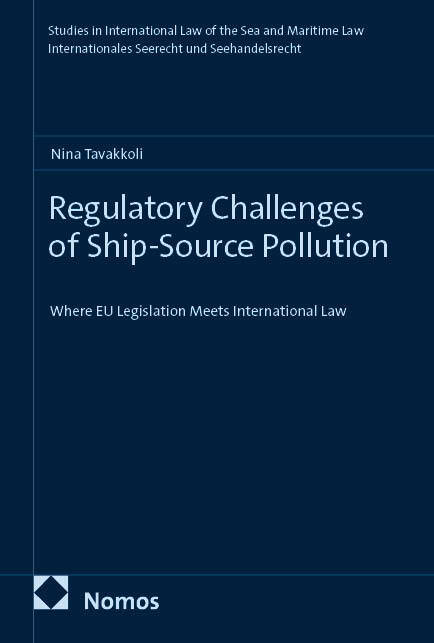
Bedankt voor het vertrouwen het afgelopen jaar! Om jou te bedanken bieden we GRATIS verzending (in België) aan op alles gedurende de hele maand januari.
- Afhalen na 1 uur in een winkel met voorraad
- In januari gratis thuislevering in België
- Ruim aanbod met 7 miljoen producten
Bedankt voor het vertrouwen het afgelopen jaar! Om jou te bedanken bieden we GRATIS verzending (in België) aan op alles gedurende de hele maand januari.
- Afhalen na 1 uur in een winkel met voorraad
- In januari gratis thuislevering in België
- Ruim aanbod met 7 miljoen producten
Zoeken
Regulatory Challenges of Ship-Source Pollution
Where EU Legislation Meets International Law
Nina Tavakkoli
Paperback | Engels | Studies in International Law of the Sea and Maritime Law - Internationales Seerecht und Seehandelsrecht | nr. 20
€ 90,45
+ 180 punten
Omschrijving
The EU has been an advocate for stricter regulations on ship-source pollution, adopting its own legislation, where international efforts have been deemed insufficient. This book explores the implications of the single largest regional organisation regulating a field as inherently global as international shipping, while diverging from internationally agreed standards. Three case studies that blend academic analysis and practical insights show that EU legislation on ship-source pollution challenges the boundaries of international law. Avoiding to address their compatibility and possible conflicts with international law adequately reflects on the EU's credibility as a global player and the legitimacy of its rule-making.
Specificaties
Betrokkenen
- Auteur(s):
- Uitgeverij:
Inhoud
- Aantal bladzijden:
- 274
- Taal:
- Engels
- Reeks:
- Reeksnummer:
- nr. 20
Eigenschappen
- Productcode (EAN):
- 9783756032945
- Uitvoering:
- Paperback
- Afmetingen:
- 153 mm x 227 mm

Alleen bij Standaard Boekhandel
+ 180 punten op je klantenkaart van Standaard Boekhandel
Beoordelingen
We publiceren alleen reviews die voldoen aan de voorwaarden voor reviews. Bekijk onze voorwaarden voor reviews.









